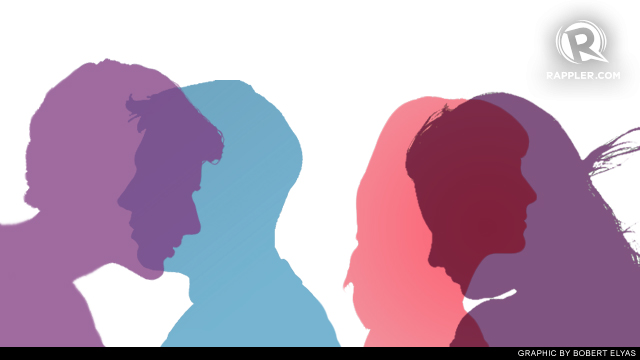SUMMARY
This is AI generated summarization, which may have errors. For context, always refer to the full article.
 I was mostly sad when I read in Tin Tin Babao’s parenting piece Being Gay that the way she counters gayness in her three-year old son is to direct him towards “boy” toys and have him play rough with his very manly father. It treated homosexuality like a disease or a defect, like a cold to be cured or a mannerism that could be avoided. The message of the article was clear: parents must correct homosexuality. It reminded me of all the horrible Filipino jokes about gay sons and how their fathers would beat them until they “changed their minds.”
I was mostly sad when I read in Tin Tin Babao’s parenting piece Being Gay that the way she counters gayness in her three-year old son is to direct him towards “boy” toys and have him play rough with his very manly father. It treated homosexuality like a disease or a defect, like a cold to be cured or a mannerism that could be avoided. The message of the article was clear: parents must correct homosexuality. It reminded me of all the horrible Filipino jokes about gay sons and how their fathers would beat them until they “changed their minds.”
During the expected backlash towards her article, she asked to be allowed her own opinion and own parenting “style.” Of course, everyone is entitled to what they believe is proper parenting, even when it unfortunately results in what is the norm for most gay people I’ve met: a spoken or unspoken disapproval in their homes for who they are. That is fine, but please don’t even try to rationalize this as anything other than hatred for a child. I could only liken it to being asked to correct your love for sunlight or to change the way you breathe. It’s suffocating and, in many cases, lethal. It’s also quite heartbreaking.
Toys as gender directors
There weren’t a lot of dolls in my house growing up, and most of those that existed were presents. There were, however, lots of puzzles, microscopes, toy cars, airplanes, aliens, planets, animals, books, and tools. My father, having a physical disability, never horsed around with my brother. The girls were never immersed in pink princess worlds. Still, my parents managed to raise two straight women, one straight man, and a lesbian (me, FYI, in case you’re so lost in the sauce). Following Babao’s logic, how could that happen?
Humor aside, I can’t help but feel grateful that in my family, while discipline and education were infallible core values, the stifling of identities was not. There were no comments about how I hated dresses and preferred to steal my brother’s clothes and wear them to family gatherings. I was allowed to be the only girl in my school’s soccer team, and the only girl on a skateboarding outing. I spent a ridiculous amount of time learning woodwork from our carpenter. For presents I’d ask for a basketball, guitar effects pedals, and pogo sticks. Once, my mother asked why I didn’t ask for makeup the way my sisters did. I just shrugged because I was who I was, and no one in my family said that it was wrong. Thank god!
Outside discrimination
But people outside my home did not hesitate to tell me their truth. I was calledT-bird and tomboy (the Filipino equivalent of dyke) at a young age, and my teachers threatened me by saying that if I didn’t change, no boy would ever like me and I would end up alone. That is a valid concern for most parents who believe that gayness=misery, but imagine being told as a child that if you stayed yourself, you would never find love? It’s the same as saying everybody hates who you are, so you’d better change!
It became my mission to prove that boys would love me. In college I built quite a reputation of collecting boys for whom I had no feelings. I tried the makeup and the dresses, and took on the many permutations of heterosexuality. Why wouldn’t I want to fit into the most convenient gender roles that seemed easier and “guaranteed” the good life and family everybody claimed? Perhaps this is what drove parents to believe it’s their duty to “correct” gayness and direct their children towards being straight. Knowing what they know about the world, they simply don’t want their children to be hurt.

Good motives For homophobia?
I won’t contest that being gay is hard. You are at a constant risk of being humiliated, and seen only for your sexual orientation. You are many times more likely to kill yourself, be killed, or be raped. But being a woman is also hard, isn’t it? You are easily victimized and you are in danger of being trafficked or raped. Does this also mean we should correct women? No, it means we should make changes in society so women are not treated this way. Why do gay people deserve less from society? Why is it that gay people need to be the ones who should change who they are so people won’t feel uncomfortable and harm them in retaliation? Is violence the only resort when dealing with people whose appearance and mannerisms are different from our own?
I don’t know how I would have turned out if, every time I reached for a Tonka Truck, a Barbie was handed to me instead, if I was told I could only wear pink dresses, or if my toolbox, bicycle or skateboard were taken away. Would I be straight? I don’t think so, but I also wouldn’t be me. If my parents locked me up when I decided to shave my head, get tattoos or pierce my ears. If my parents told me that God doesn’t like it if I don’t wear a skirt. If my parents disowned me when I told them I’d fallen in love with a girl. They wouldn’t not have a gay daughter. Instead, they would have lost a daughter.
Happy endings
I want to tell parents who are worried about having gay children that most of us are happy. We are successful, educated, and treat others the way we would like to be treated – with respect. For one, I proved my teachers wrong, because I did find love. I’m legally married now to my female partner of ten years. I’ve always tried to maintain long-term, caring and monogamous relationships. I don’t have children (I could have them If I wanted to), but instead I take part in the upbringing of the many children my gay friends are raising. I have a full-time job, a house, two dogs, one cat, hobbies, sports, vacation destinations. I have a fabulously boring life and I feel like the luckiest person in the world. That’s not so miserable, is it?
Maybe if parents heard more happy endings they would think twice before interfering with how their children play or act, and instead provide the love that children need so they know that no matter who they become, they will be loved. Maybe parents would panic less about physical appearances and their children’s perceived choices, and trust more in the God whose guidance they claim to follow. Fellow Brooklynite Fil-Am Laurel Fantauzzo summed it up in one line: “You are not required to demand that your child make invisible what God is making visible in her.”
Amen. – Rappler.com
Shakira Andrea Sison currently works in the financial industry while dabbling in several unrelated projects and interests. She is a veterinarian by education and was working towards an MBA while managing a 70-store retail corporation in Manila, Philippines before relocating to New York in 2002.
This article first appeared on Shakira Sison’s blog.
For resources on dealing with gay children, read the rest of Fantauzzo’s rebuttal to Babao here.
Add a comment
How does this make you feel?
There are no comments yet. Add your comment to start the conversation.